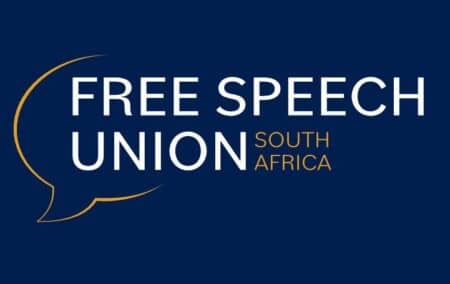Promoting free speech, criticising restrictions of it and, where possible, helping people whose freedom of speech and freedom of opinion are under attack are the key aims of the Free Speech Union South Africa (FSU SA) launched this week by the Institute of Race Relations (IRR).
The FSU SA, under the directorship of Sara Gon, is associated with FSU UK, which was founded in 2020 to advocate for free speech in light of increasing incidents of free speech being curtailed in universities and workplaces, the ‘cancellation’ of individuals due to comments made on social media, and the introduction of legislation directly infringing on free speech.
The IRR says in a statement on the launch of the new initiative: ‘South Africa has constitutional protection of free speech through Section 16(2) of the Constitution which provides that the only limits to free speech are that it may not amount to propaganda for war; incitement of imminent violence; or advocacy of hatred that is based on race, ethnicity, gender or religion, and that constitutes incitement to cause harm.
‘These provisions are, in our view, appropriately limited, allowing very little restriction on free speech. However, the Promotion of Equality and Prevention of Unfair Discrimination Act of 2000 increases the grounds on which free speech can be limited.’
However, it notes, the proposed Prevention and Combating of Hate Crimes and Hate Speech Bill ‘will criminalise hate speech, with penalties of up to three years in jail’.
‘The FSU SA believes that insulting, offensive and hurtful speech should not be restricted by legislation. No one has the right not to be insulted or hurt; that doesn’t mean that such offensive speech shouldn’t be vigorously challenged.
‘The FSU SA will promote free speech, criticise restrictions of it and assist, where possible, anyone whose freedom of speech and freedom of opinion is under attack, or anyone whose employment by or membership of an institution has been terminated because of the exercise of free speech.
‘The curtailment of free speech is particularly apparent in our educational institutions and is only beginning to be challenged.’


